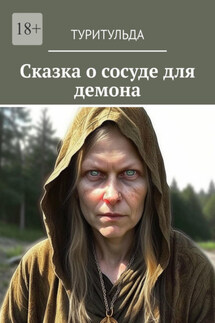Shinie’s Ritual - страница 2
They disappeared in the jungle of Central Africa, leaving nothing but a small camp, which was found four hundred years later by a mere accident.
No bodies were found, but that was no great wonder. What was really curious was the order, with which their gear was arranged and packed – as if to wait for their owners who had gone on a long trip and were to come back one day. There was a stock of food that would not spoil for years, if not decades. Clothes were all new and never worn. ID cards.
Nature did eventually interfere in the order, but it was clearly observable that they had not meant to leave for good. But where did they go and why? They might have known the answer, but they were never found, not even the bones – neither then, nor after a century, nor later.
– 2 —
Three months before the group of six stepped upon the wild lands of Central Africa, a heated debate took place in a classroom of the Institute of Biology in one of the cities of Siberia.
Professor Popov was watching with delight the young men trying to stand their ground. There were a good deal of sophomore bravado, highly flown arguments and scientifically weird statements. Every time he heard yet another absurdity, he lowered his eyes, trying to conceal a smile, and would wipe his spectacles with a rag.
He did not mean to offend anyone. Neither those who were heartily fighting for their moot point, nor those parrying with hackneyed textbook clichés. Such arguments were useful even if no truth sprouted from them.
To be brutally honest, it was the group with the moot point who appealed to Popov. However, it was time to break in, because the lecture was going to be over in seven minutes, and Professor was a man of completeness.
“Dear guys, I can say you are not fully right,” he finally said after two frantic waves of his hand, calling upon the disputers to calm down and keep silent, “you are trying to prove that а man is capable of evolving…”
“He should be!” a collective response thundered. Professor drew a horizontal line with his hand in the air to signal that, first, he had understood everything and, second, he wanted the guys to let him speak.
“Yes, man can continue to evolve, because now we have an opportunity to distract a little from gaining our daily bread, so to say, and concentrate on the vector of evolution, as you have put it… the term sounds quite moot, but I’ve seized the point and I’d like to make a correction… In other words, you mean that it is possible to focus on a particular ability and develop it, say, using methods of artificial evolution.”
Popov wiped his spectacles again, fumbling for correct words that would neither offend the guys nor discourage them from directing their quest in their chosen vector.
“You have left out the fact that any evolution is a reaction to external challenges, and the key factor, which has contributed to our breaking from the evolutionary loop, is the absence of this challenge. You see that as a species, we are currently above the evolution, do you understand? We don’t need to adjust our lives to nature, and we adjust nature to our needs, which is a reverse process.”
“But we are talking about…”
Professor drew another rigorous line.
“What you are talking about is selection. It is an imitative and therefore more predictable and less stable process. Your idea sounds very interesting, but it must be applied otherwise, do you get me? Do you?”






